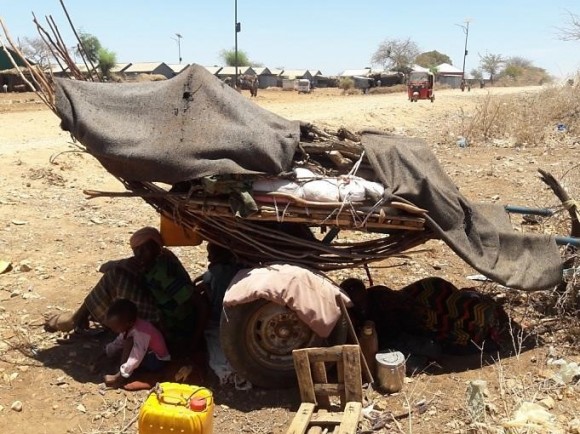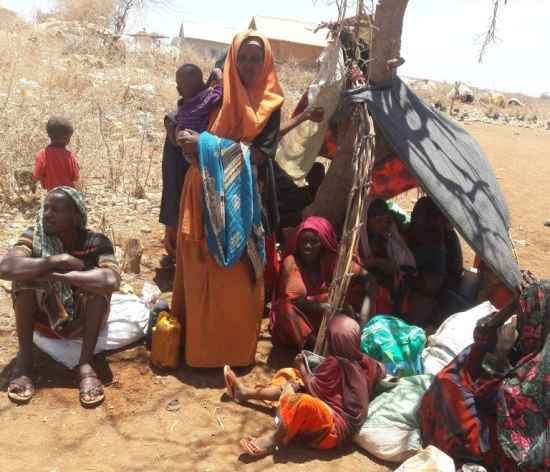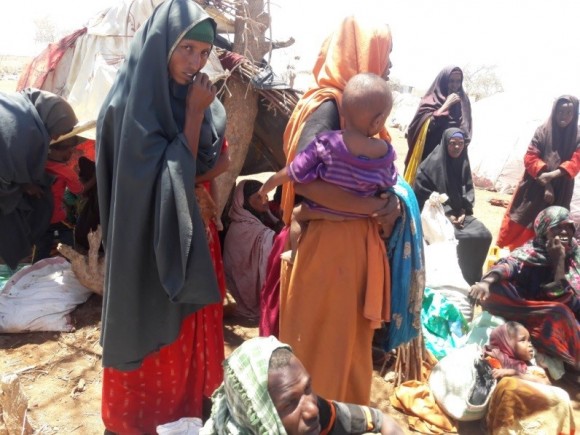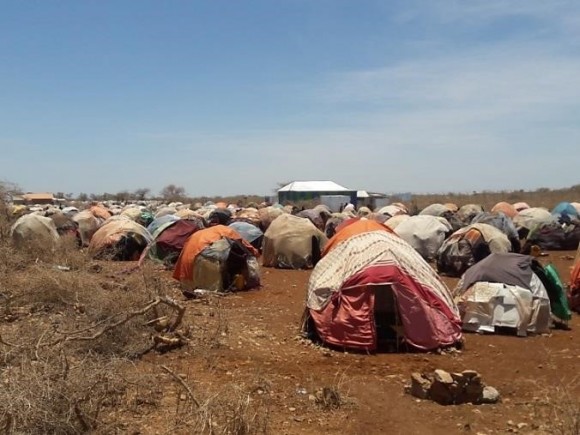Several seasons of consecutive poor and failed rains have taken their toll on pastoral and agro-pastoral communities, forcing them to travel vast distances to find water and grazing land for themselves and their dying animals.
Distress migration has begun on a large scale, with rural populations gravitating towards urban centres in search of relief. The influx of displaced populations in Somalia is already overwhelming limited services as the drought intensifies in most parts of Somalia and families who have lost everything struggle to survive.

Prolonged drought causes an increase in IDP camps in Baidoa
ACTED field teams visited the newly established Dusta, Hilaac and Tawakal Gurban camps currently hosting approximately 5000 internally displaced individuals. The town is experiencing an increased number of internally displaced people arriving daily hoping to find the much needed help in the camps as food, water and shelter remain key priorities. These families were displaced after most of them lost their livelihood to the current drought. They have been travelling for more than 120 kilometres from Diinsoor, Qansah-dhere, Gurban, Hafati, South-West of the country, to find pasture for their animals that they depend on for survival.
The journey has been long; we have been trekking for 3 days non-stop to get here.

Over six million Somalis, about 50 percent of the country’s population, have been affected by the current drought.
As early as March, families – mostly pastoralists – started arriving in Baidoa town and the local elders authorised them to establish makeshift temporary shelters until another solution was found. The arrivals were hungry and thirsty and hoped to get some help in the camps. Loss of livestock has led to severe livelihood distress for families as they struggle with food insecurity. In the IDP camps, shelters that are mostly made of sticks and covered with rugs and worn out plastic bags were very small, leading to congestion and exposure of households to harsh environmental conditions such as the scorching heat in the day and cold winds at night.

Due to a complete lack of sanitation facilities or even privacy, women in particular are forced to wait until dark to go for nature calls while others opt to bath with their clothes. Open defecation is causing a rise in water-borne diseases such as acute watery diarrhea and cholera outbreaks in the camps.
Gender-based violence remains a concern for women and girls living in the camps. Cases were reported to one of the partners handling gender-based violence cases and protection to give the victims the necessary treatment and social support. Despite referrals of gender-based violence victims to relevant partners, a lot still remains to be done to improve protection and security of vulnerable women and girls.

With no tangible support to the new IDP camps from humanitarian NGOs, host communities, led by the local traders, have organised fundraising events to offer food and water to the displaced people in the camps. The situation is increasingly overwhelming and the communities are appealing for speedy humanitarian support to offer the much needed help. Urgent action is required to save lives and restore dignity to this extremely vulnerable group. There is also an urgent need to scale-up interventions in rural areas to save lives and prevent further destitution and displacement.